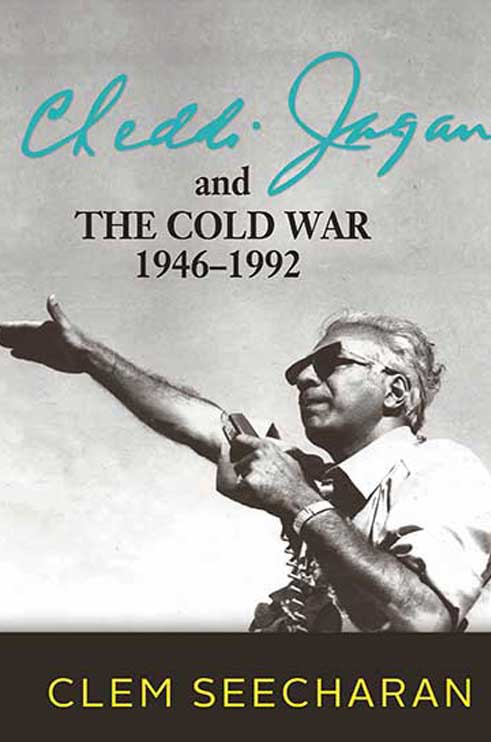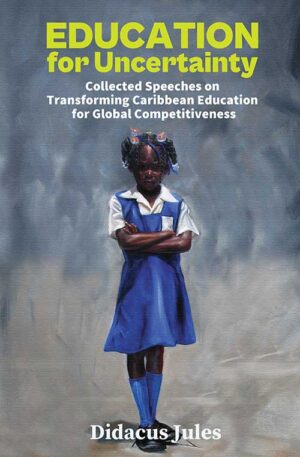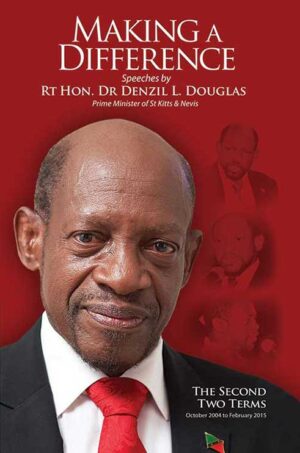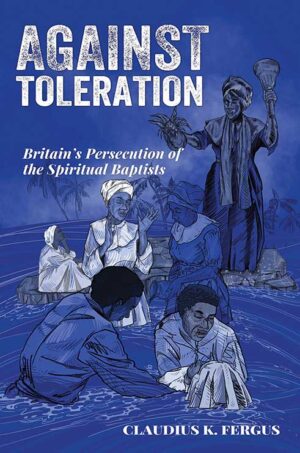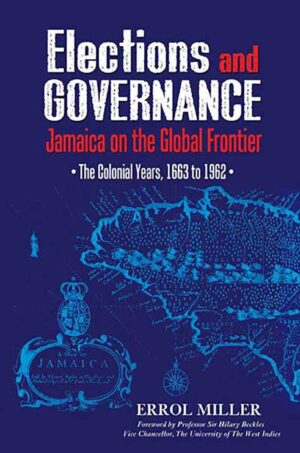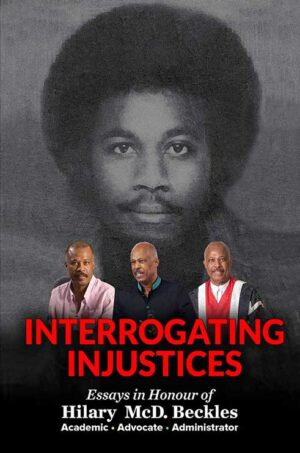Cheddi Jagan and the Cold War, 1946–1992
$45.00
Seecharan locates the intellectual origins of Jagan’s ‘secular religion’ – Marxism – as a ‘pure science’ applicable to human societies, equally valid as the natural sciences and validated by the supposedly irreproachable Soviet example.
By: Clem Seecharan
Description
Cheddi Jagan (1918–1997) was the first major politician in the Anglophone Caribbean enraptured by Marxism-
Leninism as espoused by the Soviet Union − the beacon for the radical transformation of colonies like his country,
British Guiana (Guyana). Moreover, he sought to persuade US President Kennedy, that although this was the
essence of his post-colonial vision, it would not vitiate the fundamentals of liberal democracy.
Jagan’s political mission of fifty years was deeply rooted in his repulsion by ‘bitter sugar’ – an anti-sugar
plantation, anti-Booker obsession refracted through Marxism/Leninism. Engrossed by class analysis at the core of
his epistemology, he routinely minimised, if not circumvented, the racial anxieties and religious and cultural
complexities of colonial Guyana. Yet his aspiration to create a communist society never did resonate with African
Guyanese, nor was it apprehended by his unfailingly loyal Indian supporters, most of whom disclaimed that he was
a communist. But this work establishes that Jagan’s fidelity to Marxism was incontrovertible from the inception;
and this was at variance with America’s Cold War susceptibilities, in their ‘backyard.’
Seecharan locates the intellectual origins of Jagan’s ‘secular religion’ – Marxism – as a ‘pure science’ applicable to
human societies, equally valid as the natural sciences and validated by the supposedly irreproachable Soviet
example. This was what led to his sleepwalking into the Cold War on the side of the Soviets and the Cubans. As
early as 1960, enchanted and emboldened by the Cuban Revolution, Cheddi deemed Fidel Castro the greatest
liberator of the twentieth century.
Jagan lost power in 1964 through subterfuge hatched by the Kennedy administration, with the belated connivance
of the British, who had magnanimously counselled him (in 1961 in Washington) not to divulge his Marxist
predilection to President Kennedy. Cheddi ignored them. This precipitately facilitated the resurgence of the clever,
slick, and ideologically amorphous L.F.S. Burnham, culminating in his leading Guyana to Independence. In
Seecharan’s words, ‘Cheddi had all the trumps in his hand and still lost the game.’ By his ideological intransigence,
he opened the door for Burnham’s ‘Cooperative Socialist Republic,’ thereby entrenching electoral rigging, the
undermining of liberal democracy, economic stagnation, and the flight of the country’s best and brightest of all
races to the heartlands of capitalism.
This study does not duplicate the well-documented subversion of Jagan by the US and Britain. Its principal aim is to
explore the prompting and character of Jagan’s Marxism, particularly his conviction that the Soviet Union was
paving the road to the communist utopia. In so doing, Seecharan does what no other researcher has done – dig
deep into the vast writings of Jagan himself, publications of his People’s Progressive Party and its precursor, dating
back to the late 1940s; in addition to the hitherto unexamined copious correspondence between Cheddi, his wife
Janet and Billy Strachan (their foremost ideological mentor), a leading communist in the Communist Party of Great
Britain. The work is enhanced by a series of interviews with several notable personalities who worked with or
against them.
Additional information
| Weight | 3 lbs |
|---|---|
| Dimensions | 9 × 6 in |
| ISBN | 9789768286611 |
| Binding | Paperback |
| Page Count | 756 |
Contents
Acknowledgements
Abbreviations
The Making of Cheddi Jagan’s Marxism: Landscape,
Port Mourant, ‘Bitter Sugar,’ and the Indo-Guyanese Narrative
The Sources of Cheddi Jagan’s Communist Mission:
Anatomy of His Longevity
Divergent Nationalisms: African and Indian Identities in Colonial Guyana, 1920s–40s, with
Special Reference to the Idea of an Indian Colony
Race, Class, and Colonial Stagnation: ‘Bitter Sugar,’
the MPCA, Governor Lethem, and the Emergence of
Cheddi Jagan
The Political Affairs Committee, Race, and the General Elections of 1947 148
Jagan’s Emerging Marxism, Enmore, and Its Aftermath:
The Late 1940s
Jagan’s Marxist Vision in the Context of the Cold War – I, with Special Reference to the
Suspension of the Constitution, 1950–54
Jagan’s Marxist Vision in the Context of the Cold War – II: Race, Ideology, the Cuban
Revolution, and Jagan’s Fatal Encounter with President Kennedy, 1955–61
Anti-Communism at Home and Abroad: The Decline and Fall of Jagan in the Context of the
Cold War, with Special Reference to Anglo-American Complicity, 1962–64
Burnham, Jagan’s Communism, Billy Strachan and the Communist Party of Great Britain: The
MI5 Files, the Early 1950s–1961
The Cold War and Jagan’s Politics of Futility, 1965–69
‘Scientific Foresight’: Jagan’s Utopian Marxist Vision and Burnham’s Amorphous Socialism
502
‘I am a Socialist; You are not a Socialist’ – I: Burnham’s Cooperative Socialism v Jagan’s
Marxism-Leninism
‘I am a Socialist; You are not a Socialist’ – II:
The Absurdity of Jaganism and Burnhamism, 1976–79
‘What I Stand for Is Winning in the World’:
Dedicated Man, Inflexible Mind, 1980–91
The Fall of Communism and the Jaganite Mission
Conclusion: A Journey to Nowhere
Select Bibliography
Index

